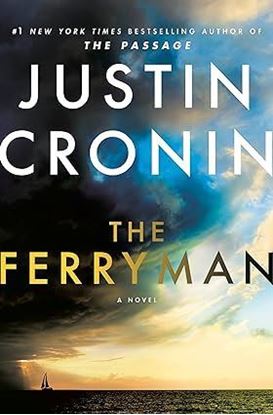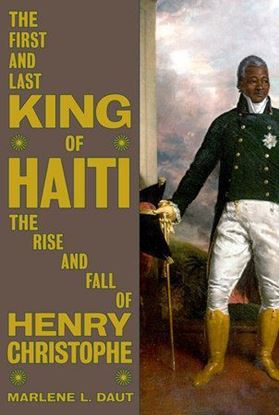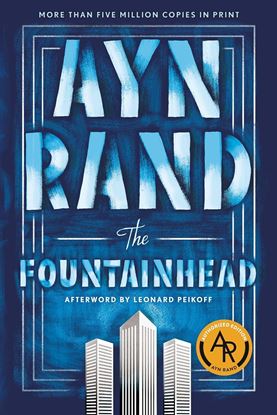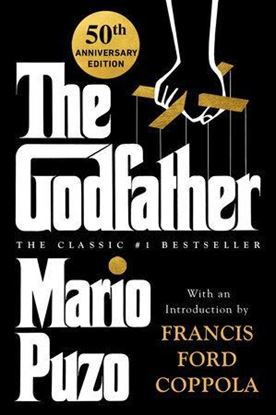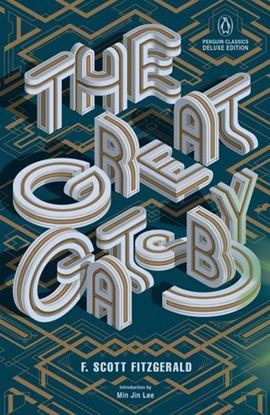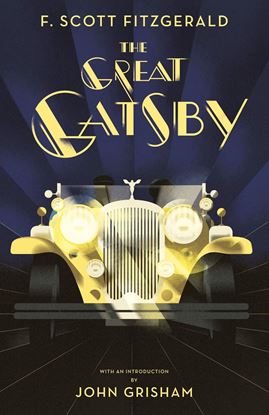

THE FERRYMAN
Founded by the mysterious genius known as the Designer, the archipelago of Prospera lies hidden from the horrors of a deteriorating outside world. In this island paradise, Prospera’s lucky citizens enjoy long, fulfilling lives until the monitors embedded in their forearms, meant to measure their physical health and psychological well-being, fall below 10 percent. Then they retire themselves, embarking on a ferry ride to the island known as the Nursery, where their failing bodies are renewed, their memories are wiped clean, and they are readied to restart life afresh.
Proctor Bennett, of the Department of Social Contracts, has a satisfying career as a ferryman, gently shepherding people through the retirement process—and, when necessary, enforcing it. But all is not well with Proctor. For one thing, he’s been dreaming—which is supposed to be impossible in Prospera. For another, his monitor percentage has begun to drop alarmingly fast. And then comes the day he is summoned to retire his own father, who gives him a disturbing and cryptic message before being wrestled onto the ferry.
995
THE FIRST AND LAST KING OF HAITI
Slave, revolutionary, traitor, king, and suicide, Henry Christophe was, in his time, popular and famous the world over. Born in 1767 to an enslaved mother on the Caribbean island of Grenada, Christophe first fought to overthrow the British in North America, before helping his fellow enslaved Africans in Saint-Domingue, as Haiti was then called, to gain their freedom from France. Yet in an incredible twist of fate, Christophe ended up fighting with Napoleon’s forces against the very enslaved men and women he had once fought alongside. Later, reuniting with those he had betrayed, he offered to lead them and made himself their king. But it all came to a sudden and tragic end when Christophe—after nine years of his rule as King Henry I—shot himself in the heart, some say with a silver bullet.
Why did Christophe turn his back on Toussaint Louverture and the very revolution with which his name is so indelibly associated? How did it come to pass that Christophe found himself accused of participating in the plot to assassinate Haiti’s first ruler, Dessalines? What caused Haiti to eventually split into two countries, one ruled by Christophe in the north, who made himself king, the other led by President Pétion in the south?
The First and Last King of Haiti is a riveting story of not only geopolitical clashes on a grand scale but also of friendship and loyalty, treachery and betrayal, heroism and strife in an era of revolutionary upheaval.
2,500
THE FOUNTAINHEAD
This modern classic is the story of intransigent young architect Howard Roark, whose integrity was as unyielding as granite...of Dominique Francon, the exquisitely beautiful woman who loved Roark passionately, but married his worst enemy...and of the fanatic denunciation unleashed by an enraged society against a great creator. As fresh today as it was then, Rand’s provocative novel presents one of the most challenging ideas in all of fiction that man’s ego is the fountainhead of human progress..
1,450
THE GODFATHER (50TH AN.)
With its brilliant and brutal portrayal of the Corleone family, The Godfather burned its way into our national consciousness. This unforgettable saga of crime and corruption, passion and loyalty continues to stand the test of time, as the definitive novel of the Mafia underworld.
900
THE GREAT GATSBY (DELUXE)
Young, handsome, and fabulously rich, Jay Gatsby seems to have everything. But at his mansion east of New York City, in West Egg, Long Island, where the party never seems to end, he's often alone in the glittering Jazz Age crowd, watching and waiting, as speculation swirls around him--that he's a bootlegger, that he was a German spy during the war, that he even killed a man. As writer Nick Carraway is drawn into this decadent orbit, he begins to see beneath the shimmering surface of the enigmatic Gatsby, for whom one thing will always be out of reach: Nick's cousin, the married Daisy Buchanan, whose house is visible from Gatsby's just across the bay.
1,250
THE GREAT GATSBY (VINTAGE CLASSIC)
For generations of enthralled readers, the mysterious millionaire Jay Gatsby has come to embody all the glamour and decadence of the Roaring Twenties.
To F. Scott Fitzgerald’s bemused narrator, Nick Carraway, Gatsby appears to have emerged out of nowhere, evading questions about his murky past and throwing dazzling parties at his luxurious mansion. Nick finds something both appalling and appealing in the intensity of his new neighbor’s ambition, and his fascination grows when he discovers that Gatsby is obsessed by a long-lost love, Daisy Buchanan.
But Daisy and her wealthy husband are cynical and careless people, and as Gatsby’s dream collides with reality, Nick is witness to the violence and tragedy that result. The Great Gatsby's remarkable staying power is owed to the lyrical freshness of its storytelling and to the way it illuminates the hollow core of the glittering American dream.
With a new introduction by John Grisham.
1,100

